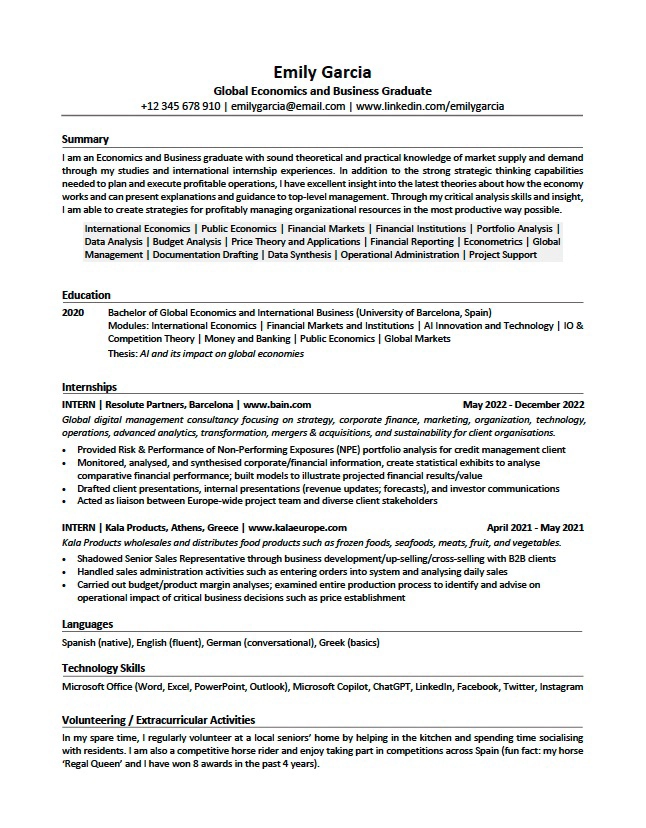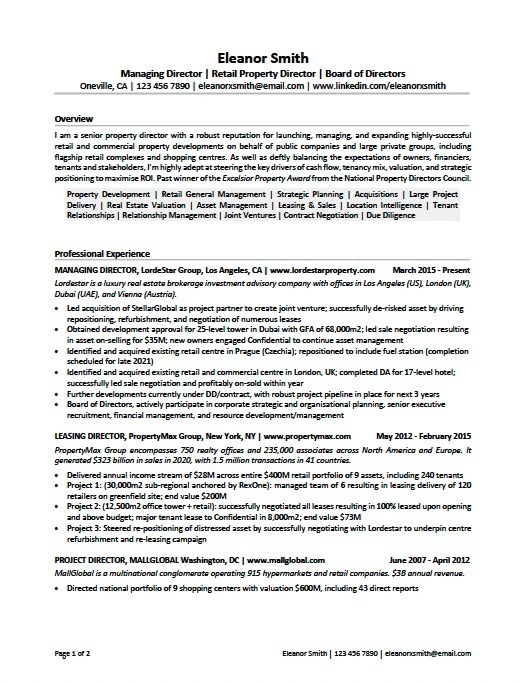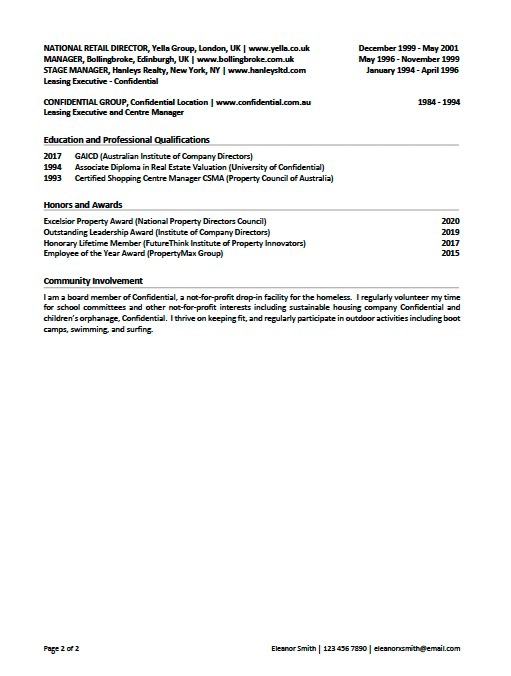How Long Should My Resume Be? Tips for Ideal Resume Length
Resolving the typical misunderstanding about right length of resume
Since the beginning there has been an enquiry: how long should my resume be?
So you see lots of contradicting advice about the right length that ends up creating confusion.
In fact there is increasingly even a tendency right now towards 1 page is best among so-called career gurus, who would advise what they like and not necessarily what is in the best interest of companies or job seekers.
It is also true that recruiters only take a few seconds in order to make a decision concerning whether to read further or not. However, we cannot suppose that they suffer short attention! Your resume must instantly enlist their attention which has nothing to do with whether it is one or two pages long.
However, in practice, although getting all the necessary information on one-page sounds impressive, the idea does not consider what recruiters and hiring managers may think, or allowances of different experience levels.
On the one hand, cramming your resume with much information on numerous pages will not really benefit you. The other side to the coin is that cutting out worthwhile experience can in fact cost one a job opportunity because the shorter resume is much easier to look after.
What to avoid: do not be blind as far as trends are concerned. Be sensible
In this blog post, we’ll cover how to understand when to use 1-page, 2-page and even 3-page+ format.
Not only is our Career Coaching staff powerfully equipped with the knowledge and expertise to guide your career search; but we are in daily contact and communication with key hiring decision-makers, headhunters, and recruitment agencies. This paper will tell you what is best as the length of resume based on what real companies want to see.
Remember the advice that follows is internationally applicable advice, but with some minor country-specific differences. As a fail-safe measure, be sure to consult the country of your application whose conventions should always be followed. Overall, the suggestions herein are
What is supposed to Have in my resume?
Now that we have our minds fresh on what should be included (and what should not be included) in a standard resume, we can look at possible resume lengths. This way, you will not be cluttering it into becoming unnaturally long, or cutting it too short by omitting useful information.
In the majority of the cases, your resume or CV must contain:
- A name / contact details section on the top
- A headline beneath your name (e.g. your current title, or the desired title)
- A brief biographical statement of what you do as a profession
- A key skills box (which outlines your related hard skills to the job you are applying to)
- Your job experience (we’ll work out on what and how much to include later in the sections)
- Your education / qualification
- Any professional honors or prize money
- Technology skills
- Languages
- Professional memberships (as appropriate)
The exact arrangement of these sections will be based on the job you may be applying. To give an illustration, when you work in the field of technology, then your skills and knowledge of technology will supersede your work history. If you are a physician or an accountant, your credentials will be listed too prior to professional experience.
Optional fields are also volunteers and hobbies and interest. The inclusion of these depends on whether you believe these to add value to the nature of job as well as company you are considering to apply in.
If you are possessing a degree/professional qualification you can safely omit prior qualifications (e.g. high school). The same can be said about clubs or activities or interests you pursued in your earlier years: unless directly related and comparatively recent then there is no need to include that spelling bee you won in Grade 12 or cheerleading during university.
Today resumes are more skill oriented than complete and detailed accounts of career. Overall, you should be able to shorten and even eliminate job descriptions that are over 8-10 years old as well as job descriptions that are in no longer applicable to your current career focus. Your more recent jobs form a better reference to your seniority and your current skill-set. This is the case because hiring decision makers would look at this work more than later work.
Read Also: Islamic University of Madinah Scholarship 2026
crescent mechanicsburg job and Maintenance Technician 2nd Shift
Yale Computer Science College Scholarship
When may I have a one-page resume?
In literal terms, a 1-pagel resume will suit best to a student, a newly-graduate or a person with very little work background. This is (very roughly) 5 years or less of work experience.
The 1-page format in this instance provides you adequate space to elaborate on your duties and accomplishments in a way that feels natural; in the 2-page format, the space would visually make clear that you have little experience.
Some of the common sections that can be omitted in this format include professional membership as they may not have meaning to more junior professionals.
A second scenario in which a 1-page format can be suitable is when you have purely technical jobs such as software engineer. Because your technical background and skills, qualifications and project types, achievements are of greater interest to a recruiter than the long running job description, such resumes can be made concise.
Note: if you have a long history of different positions in a short time range (e.g. notable internships or several contract jobs), then it is better to go with 2-pages format. Otherwise, the 1-page format may be unfavourable, since you can not demonstrate all your relevant skills and experience.

What is the most appropriate length of a two-page resume?
The most wide-spread type of the resume is the 2-page type.
It is normally ideal on individuals who have more than 6 years of experience in that regard, in other words, mid and high level professionals. This is because it offers sufficient length to accommodate the most critical sections in the list given at the beginning of this post, and still any other option such as volunteering.
At this point of your career you already have much to demonstrate in skills and achievements, and recruiters are eager to see it.
The second advantage of this length is that it is also possible to give a brief company description (not more than 1-2 lines). This is not necessary, but, a company description will allow you to show a little bit more about your industry or sector experience, or get some more keywords which a recruiter may be searching on (e.g. SaaS).
Size: Just because you have more space with this format, everything you include must be relevant and to the point. Consider omitting job description of positions held more than 8-10 years old or more as those would not be relevant to your present skills set.


What when 3+ pages or more? Is my resume ever going to be so long?
Yes.
Longer resumes are more typical in the worlds of academia and project work.
In the case of academia (e.g. adjunct professor, Head of Department, Principal, scientists, etc.), they are often substantively longer than the average resume, and may include subsections on publications, extensive professional development, research, presentations, etc.
The regular 2-page resume is ideal to be used in the case of project work, and any project summaries may be used as an appendix, starting after Page 3. That way, hiring managers can plow through your work history and credentials quickly then tap into your expansive project experience when they are interested.
Conclusion
In a nutshell, a 1-page resume can be used by entry-, junior professionals, whereas two-page ones are most successful at the mid-senior level.
NB: These are mere guidelines. Although the hiring managers might articulate certain preferences, the above suggestions are internationally oriented.
Want feedback on your resume/CV so that you can improve it? Get a FREE review of your resume/CV with JobLeads. After that, our career coaches will reveal their own secrets as to how to make your document even more effective, so as to help you successfully find your dream job in a shorter period of time! Wish you luck in your future position!
Key takeaways:
- A very basic resume is supposed to be 1 page; it is most effective in the case of students, recent graduates, or early career professionals with less than 5 years of experience.
- The common length of resume is 2 pages. It is typically appropriate to be read by mid- and senior-level professionals (people who have, 6+ years or more, experience).
- In academia and project-based positions a 3-page (or more) resume is acceptable.
- There will always be exceptions to such rules and some hiring managers may want it a certain way. Unless otherwise specified, however, we suggest adhering to the conventional standards described in this post.
- JobLeads provides no-cost, obligation-free resume critique to professionals who would like to have their current resumes reviewed.
What You’ll Learn: The actual facts about the myth of the 1-page resume when 1-page is ideal Why 2 pages can be the optimal length for a career-level individual Understanding when a 3-page (or more) resume may be advantageous how to leverage company profiles to make your resume and optimal insurance strategy
Related questions
How do I prioritize the content, when I have a lot of experience to fit on a 2 page resume?
There are factors to take into account when deciding on content priorities when preparing a resume, i.e. relevance and impact. Use experiences that are relative to the position that you are applying and focus on the roles/projects that had a large impact. Wherever it is possible, show quantifiable outcomes of your work. This makes the most interesting information to be brought out in a limited space
So how do I find out what the industry requirements are in (suggestions) regarding ideal resume length?
Differing specializations can have their own norms of resume length As an example, a CV required of an academic and scientific professional would be more detailed than these professions which are predominant in business, technology or creative markets. An enhanced understanding of expectations of your industry and preferences of the company can assist you in deciding about the length and the amount of details you should have in your resume.
How do I efficiently work with HOT keywords into resume?
The best way to use keywords on a resume is to take job advertisements carefully and identify the skills and attributes most of them use. Adapt these to make your resume specific to your language that should reflect the terms used in your field and the job advertisement. This will serve not just to get through applicant tracking software, but also as a way of showing that you are right for the job in an authentic and natural manner. Keep in mind that you want the ATS scanner to pick up on the keywords, but you also want humans to be drawn into reading your resume, so it is necessary to weave your keywords into a narrative of your professional achievements and qualifications.